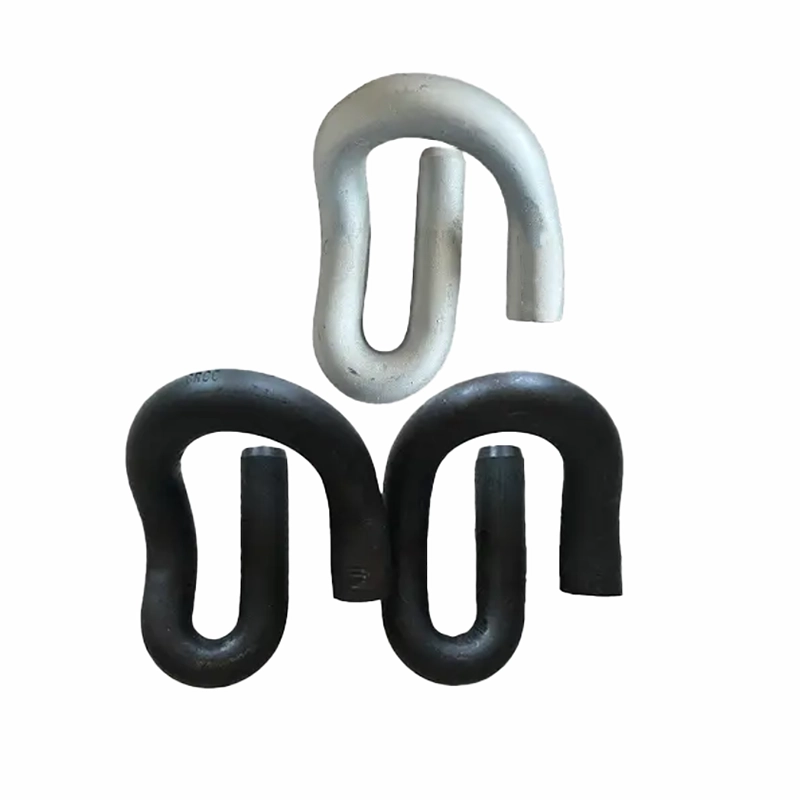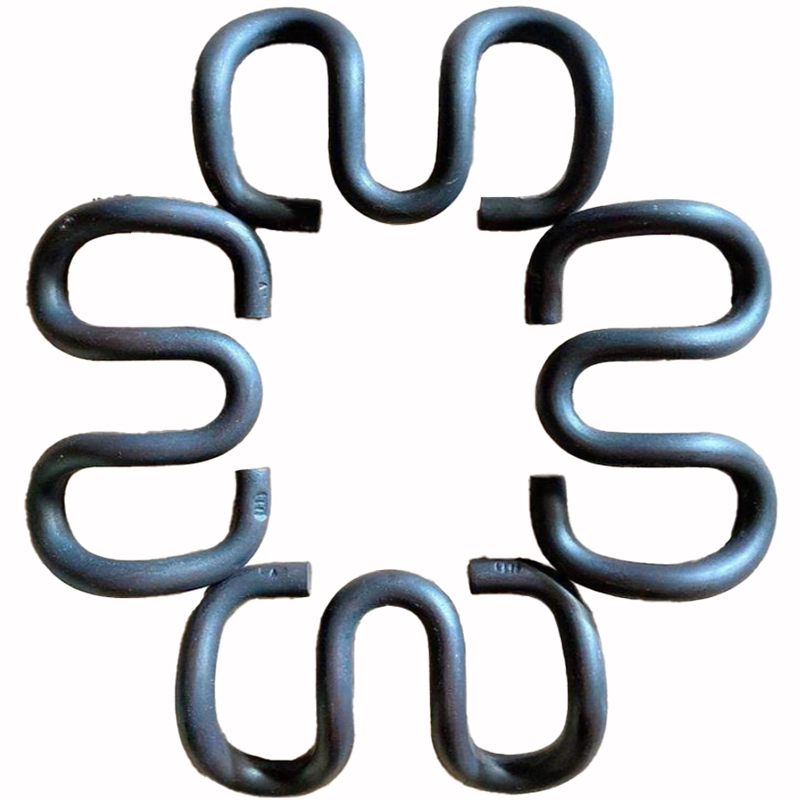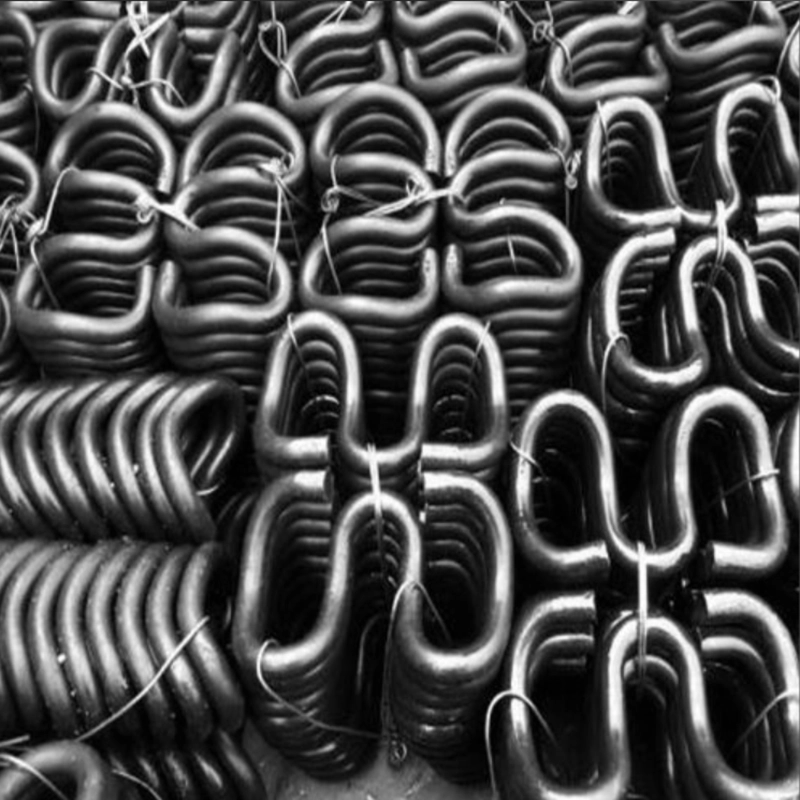Elastic Rail Clips
Overview
Buy elastic rail clips engineered for continuous welded rail, heavy axle loads and harsh environments. Our elastic fasteners (E-clip / SKL / ω-type / Type I–III) deliver resilient clamping, strong creep resistance and low lifecycle maintenance for both ballasted and ballastless systems.
Product families & compatibility
E-Clips — compact, easy to install and widely used with rails from light to medium weight classes; offers dependable resistance to longitudinal slip.
SKL series — tension clamp family tailored for concrete-sleeper systems and heavy traffic conditions.
ω / Type I–III elastic clips — the ω-style clip is common for standard 50/60 kg rails and gentler curves; Type II/III designs are intended where higher clamping force and greater residual stiffness are required.
Technical specification
Materials (standard choices) Premium spring-steel grades (used in heavy-duty clips) after controlled quench & temper cycles to achieve the required strength and toughness. Cost-sensitive options with established service records are available for standard applications.
Mechanical expectations Post-heat-treatment hardness and toughness target ranges are set to ensure long fatigue life under cyclic rail loads. Fatigue performance and residual-set limits are verified by manufacturer test reports supplied with delivery.
Finish / corrosion protection options Temporary protective oil / film for short-term storage or temporary installations Organic coatings (powder or electrophoretic paint) for non-aggressive environments. Hot-dip galvanizing for robust, long-term protection in many industrial atmospheres. Thermal spray (aluminium or zinc alloys), optionally sealed, for highly aggressive, marine, or acidic environments
Installation & torque guidance Typical final nut torques used in practice fall within a common operational window; increased torque is frequently specified for curves and braking zones. Always apply the fastening system supplier’s torque sequence and follow a re-torque schedule after initial traffic settlement.
Standards, testing & certifications
We design and test our products to conform with widely recognised fastening system specifications and acceptance practices. For every order we can furnish:
Material mill/test certificates and heat-treatment records.
Batch hardness checks and representative fatigue test summaries.
Coating verification (thickness & method) for galvanizing or thermal spray.
Traceable lot numbers and packing documentation to support site acceptance.
These deliverables support engineering review, procurement checks and project QA processes.
Installation & maintenance
Use calibrated torque tools and follow our recommended pre-loading and re-torque procedures (initial torque → traffic settlement → re-torque).
Inspection cadence: visual and torque checks on a regular basis (quarterly recommended for many operations); comprehensive inspections — including fatigue/ metallography and coating checks — at intervals defined by local practice or project standards.
Replace any clip that shows permanent set exceeding acceptable thresholds (residual set), visible cracks, or a proven loss of clamping force beyond acceptable limits.
Corrosion strategy — pick by environment
Dry / sheltered sites: organic coatings or painted finishes are typically sufficient.
Humid / industrial atmospheres: hot-dip galvanizing plus a sealer or thermal spray delivers longer service life.
Marine / strongly corrosive / acid mine conditions: thermal spray systems with a sealing topcoat are recommended as the most durable option for complex geometries and edges.
Purchasing information
MOQ: varies by SKU — contact sales for stock and sample availability.
Lead time: stocked SKUs available within days; bespoke heat-treated or coated batches require longer production and coating cycles — contact us for firm lead-time commitments.
Pricing: depends on clip family, material grade, surface treatment and required test documentation. Request a quote for an itemised offer.
Payment & shipping: common commercial terms accepted; logistics and packing tailored to track-side delivery needs.
Samples & tests: samples available under standard sample terms; accelerated or project-specific tests can be arranged as part of the procurement package.
Ready to buy? ↓
Why choose our elastic rail clips?
Consistent elastic clamping that limits creep and maintains track geometry — reduces the need for frequent re-tensioning on continuously welded rail.
Built for heavy duty use with long service intervals — compatible across common fastening families and designed to meet the demands of high axle loads.
Traceable production and test documentation — batch material certificates, heat-treatment records and fatigue data are provided with deliveries.
Flexible corrosion protection options — we offer temporary oil films, painted finishes, hot-dip galvanizing and thermal-spray systems so you can match protection to site conditions.
FAQs
Q:Which clip for 60 kg/m rail on concrete sleepers?
A: Clips mechanically and geometrically matched to the sleeper/pad interface (Type II or equivalent tension-clip families) are commonly used — request a compatibility matrix for your sleeper design and rail section.
Q: What finish for a coastal project?
A: Thermal spray with a sealing topcoat or a heavy galvanized system is typically recommended for coastal exposure; choice depends on local exposure class and maintenance access.
Q: Can you provide third-party testing?
A: Yes — independent fatigue, metallography and coating verification testing can be coordinated as part of the order.


